Space knowledge Worksheets for Ages 3-6
5 filtered results
-
From - To
Explore the wonders of the cosmos with our "Space Knowledge Worksheets for Ages 3-6". Perfectly designed for young explorers, these engaging, printable worksheets foster curiosity and early learning through fun, interactive activities. Children will embark on a learning adventure, discovering planets, stars, and beyond. Thoughtfully crafted to blend education with play, our worksheets enhance key developmental skills such as counting, reading, and creative thinking. Ideal for parents and educators seeking to introduce preschoolers to the fascinating world of space. Ignite your child's imagination and set the foundation for future learning with our stellar resources!
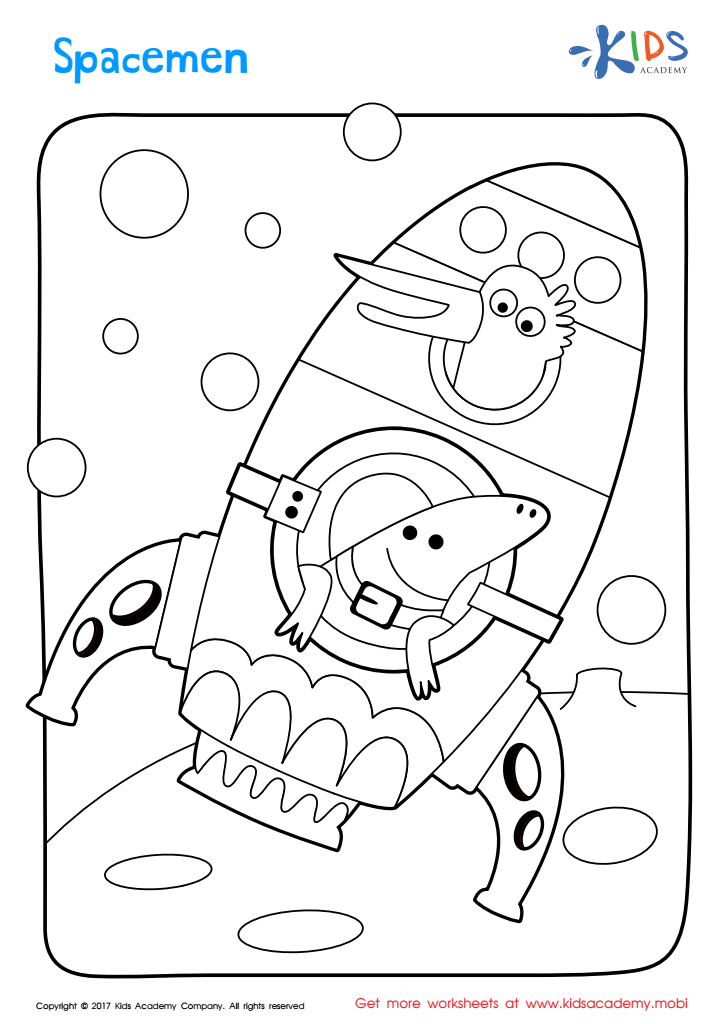

Spacemen Coloring Page
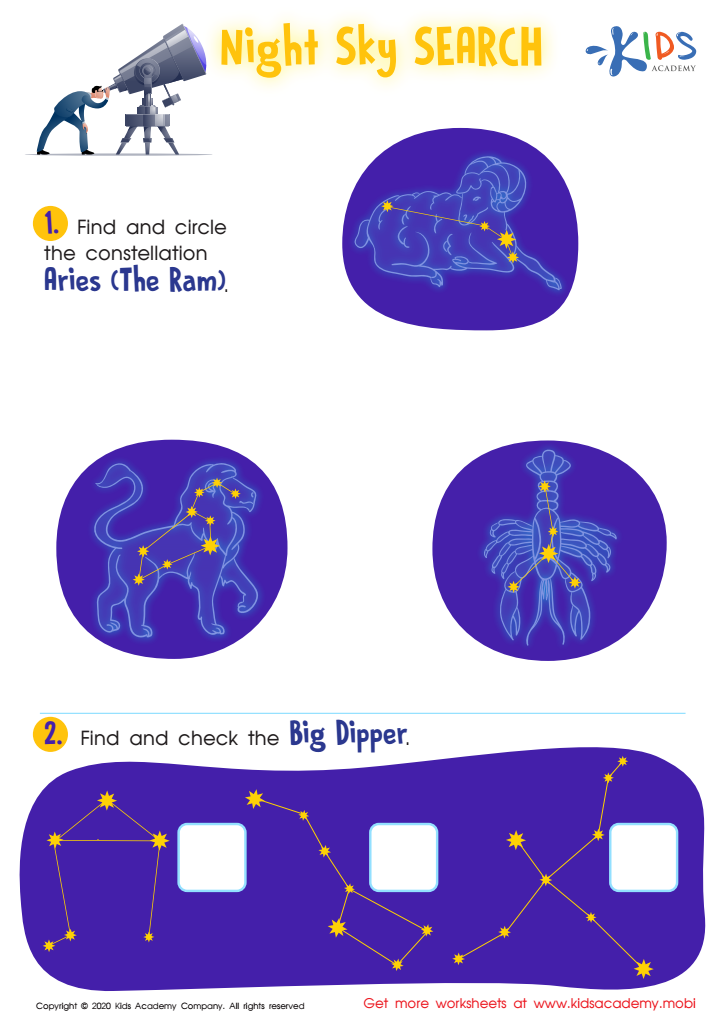

Night Sky Search Worksheet
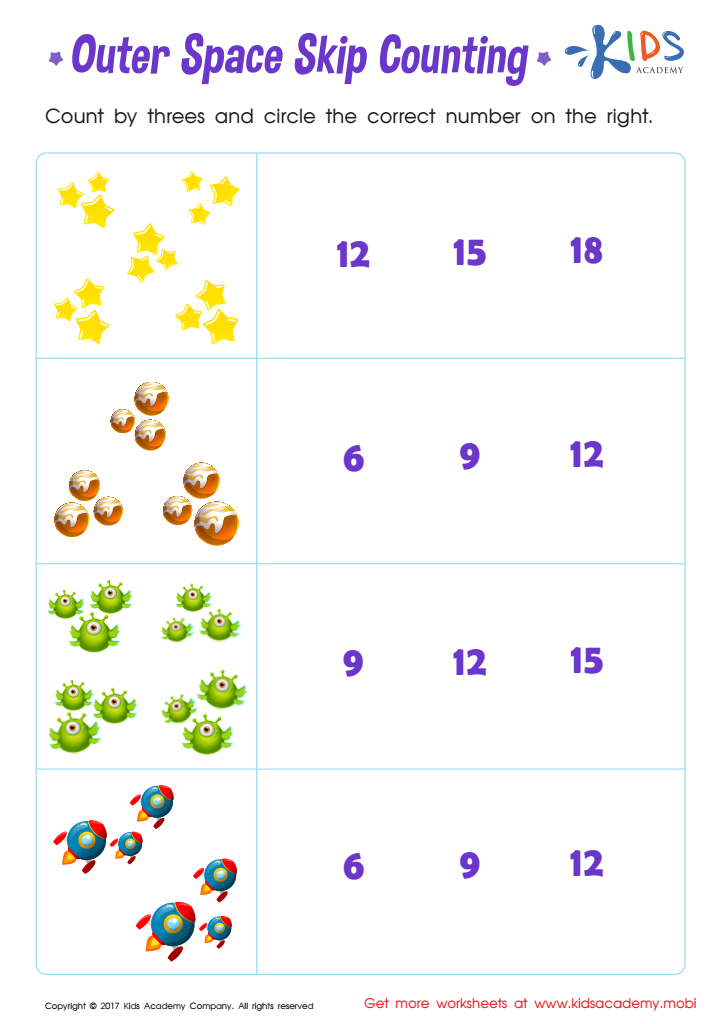

Skip Counting by 3s: Outer Space Skip Counting Printable
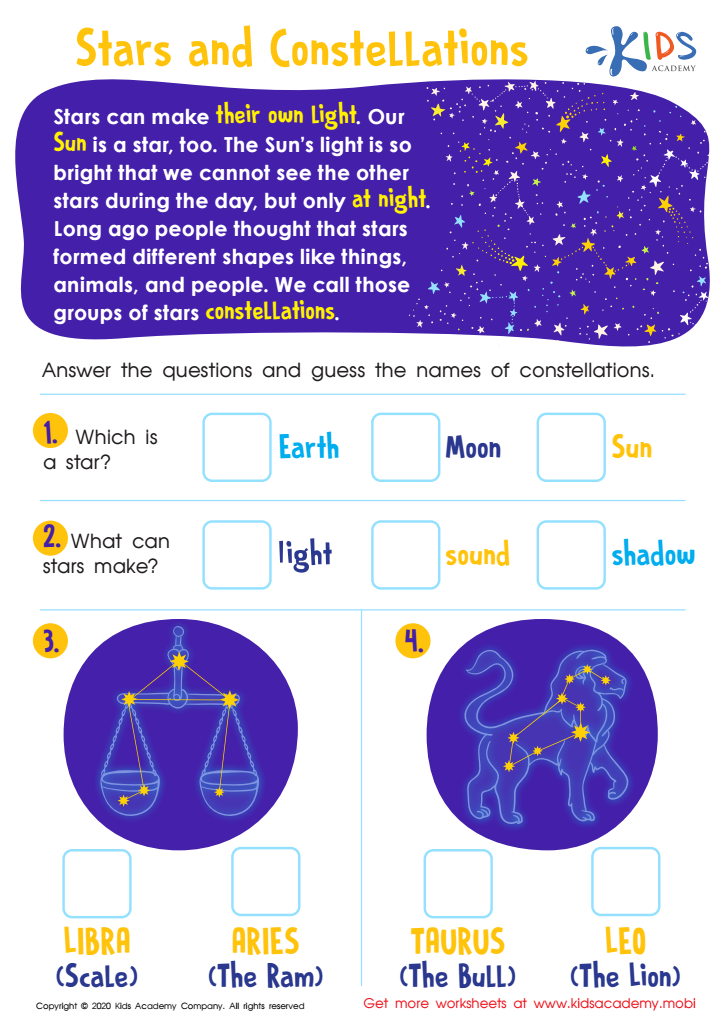

Stars and Constellations Worksheet
Introducing space knowledge to children aged 3-6 can ignite their natural curiosity and foster an early love for learning. At this tender age, kids are exceptionally receptive and eager to explore new concepts. Teaching them about space exposes them to vast and intriguing ideas that can spark wonder and awe. Discussing planets, stars, moons, and astronauts not only captures their imagination but also lays a foundation for future scientific and mathematical learning.
Space-themed stories and activities can improve their cognitive development by encouraging critical thinking and creativity. For example, when children imagine walking on the moon or count the rings around Saturn, they engage in problem-solving and strengthen their numerical skills. Additionally, learning about the vastness of space promotes a sense of perspective and humility, helping kids understand their place in the universe.
Incorporating space knowledge can also improve language skills. New and exciting vocabulary words like "rocket," "planet," and "gravity" expand their linguistic horizons and communication abilities. Furthermore, it introduces them to concepts of diversity, inspiring respect for different cultures and ideas by showing how humanity collaborates in space exploration.
Ultimately, fostering an interest in space at an early age helps shape curious, knowledgeable, and open-minded future learners and thinkers. Whether you're a parent or teacher, introducing young children to space can be a delightful and profoundly educational experience.

 Assign to My Students
Assign to My Students

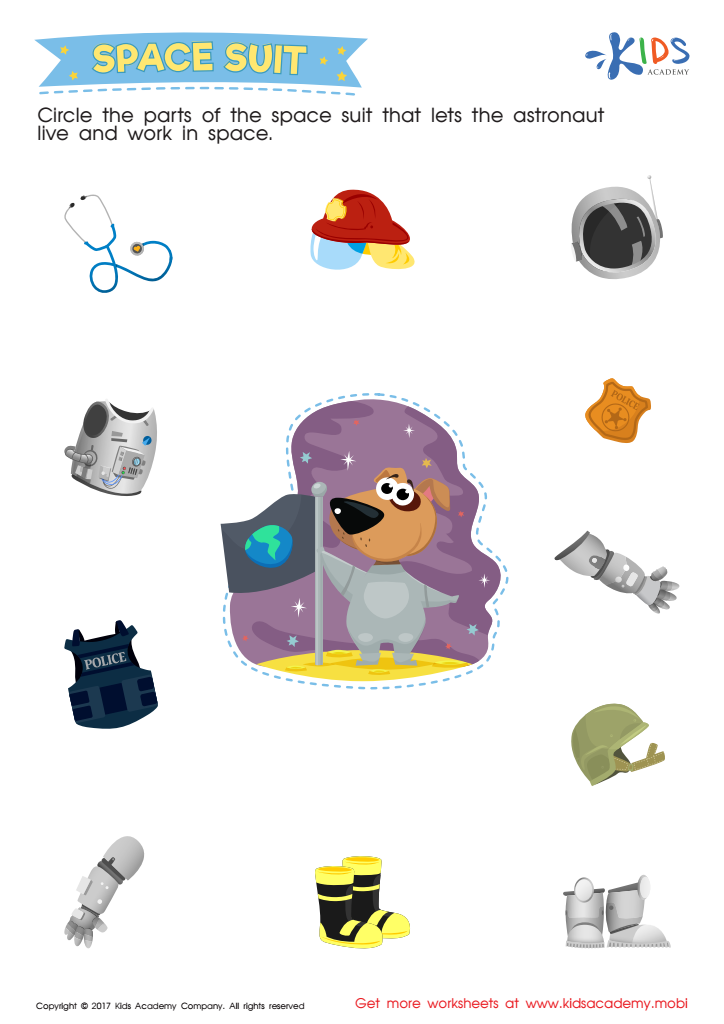







.jpg)













